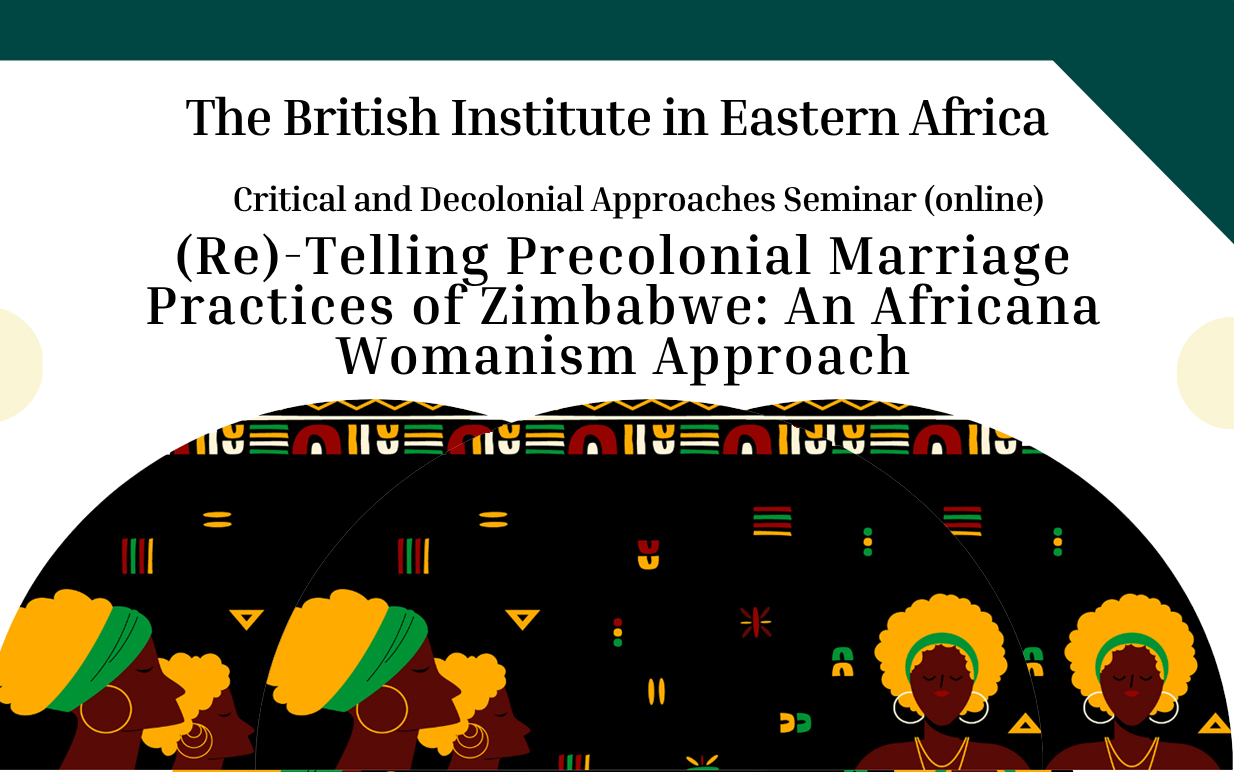
Critical and Decolonial Approaches Seminar (Online)
(Re)-Telling Precolonial Marriage Practices of Zimbabwe: An Africana Womanism Approach
Abstract
In line with the BIEA theme ‘(Re)telling the past’, this paper examines precolonial marriage practices of Zimbabwe from an Afrocentric perspective. (Re) telling is important because, this far, Eurocentric perspectives have dominated narratives which defined African marriage practices as barbaric and retrogressive, and imposed western ways of marriage. This has created identity problems and societal problems. For example, violence in domestic spaces, children in difficult circumstances, orphans and uncared for widows. Thus, (Re)telling marriage histories, though a highly contested process in terms of whose voice is heard and excluded, offers opportunities for society to reflect on the legacies of Zimbabwean culture and heritage, with a view to offer solutions to challenges of the 21st Century. Reflection on the past is not romanticizing the past, but it includes critical investigation into issues of common concern. For example, issues of gender-based violence including femicide, child marriages and unhappy marriages can be understood from understanding the past. The paper uses Africana Womanism as an alternative approach to feminism, drawing on some of its characteristics which include family centeredness, male compatibility, and valuing mothering. It empowers men and women to redefine their identity against the onslaught of modernity. The paper develops an innovative blended approach that includes field work, conducting oral interviews with elderly persons, re-reading of initial writings by anthropologists, use of literary works, and songs. The key argument is that historical knowledge about marriage practices in precolonial Zimbabwe can offer insights into precolonial societies elsewhere in Africa and offer solutions to some of the recurring problems.
Speaker
Dr Sibongile Mauye is an interdisciplinary researcher and practitioner in gender, society, reproductive health rights and development history at the University of Zimbabwe. Her DPhil thesis used archival and ethnographic approaches to historize gender-based violence in a multi-racial context highlighting issues of power, race and culture. The research speaks to current themes such as human rights peace building, heritage, and sustainable development. She is a Research Associate of the British Institute in Eastern Africa (BIEA). She has published in academic journals; TAZMAN, and Journal of Contemporary Studies. Recently her book chapter on gender and inheritance issues was published in an edited book. She served as a part time Commissioner on the Zimbabwe Gender Commission for 10 year.





